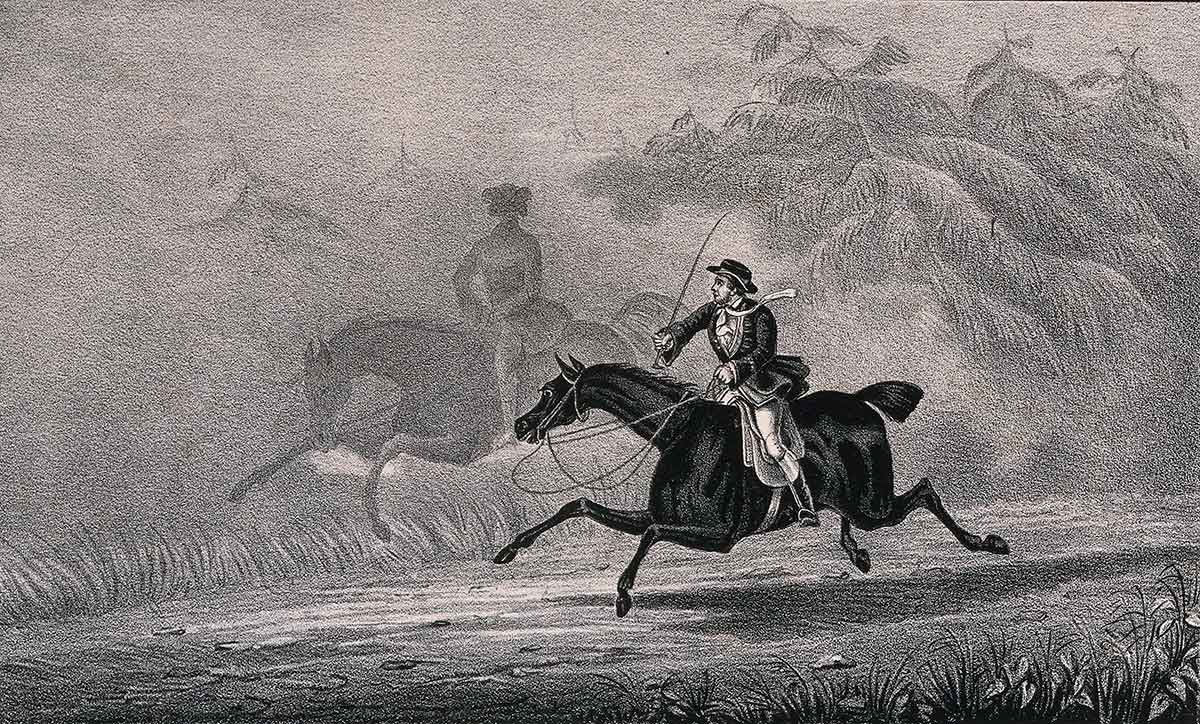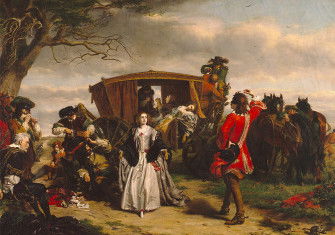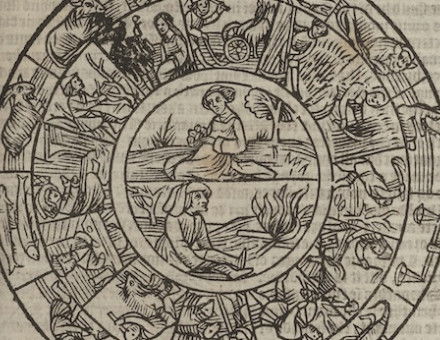The Death of Dick Turpin
The notorious highwayman was hanged on 7 April 1739.

A respectable butcher, Turpin turned to crime when he was offered the chance to fence deer carcasses poached by an Essex gang. When the bounty on poaching was increased they turned to housebreaking, targeting farms and houses on the fringes of London during the winter of 1734, once threatening to roast an old lady over her fire if she did not give them money.
In February 1735 some of the gang were captured and one, John Wheeler, turned informant. Only Turpin and another member remained at large and they briefly took to highway robbery. By May the accomplice had been captured and Turpin went to ground.
Having killed a forest-keeper at Epping, Turpin had a £200 price on his head. He fled to Yorkshire. Using the name John Parmen, he was arrested in 1738 for disturbing the peace and removed to York Castle. His brother-in-law refused to pay 6d due on a letter Turpin had written to him, as he did not recognise Turpin’s pseudonym. It was returned to the postmaster who, by chance, taught Turpin as a boy and recognised his writing. He informed the authorities and Turpin was tried and hanged.
His legend spread in chapbooks from around 1800, where the feats of other highwaymen, notably William Nevison’s ride from London to York, were attributed to him, transforming a poacher-cum-horse-rustler into the highwayman par excellence.





